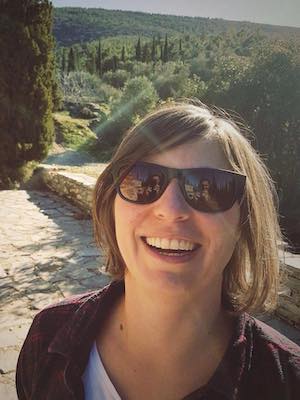Building communities to support Research Software Engineering: blog series 3/3
Building communities to support Research Software Engineering: blog series 3/3
Posted on 11 May 2018
Building communities to support Research Software Engineering: blog series 3/3
 By Anna Krystalli, University of Sheffield, and Toby Hodges, EMBL Bio-IT
By Anna Krystalli, University of Sheffield, and Toby Hodges, EMBL Bio-IT
Read part 1 and part 2 of this series of blog posts.
03: Continuing Challenges
Moving From a Top Down to a Decentralised Model
We were all in agreement that one of the most challenging aspects of sustaining community is enlisting contributions. Challenges to peoples time and the non trivial work providing support and encouragement required to foster welcoming inclusive environments pose challenges to motivating participation.
To a certain extent, dedicated seed staff will likely continue to be an important determinant on the success of a community building initiative. While making the most of the available tools and practices we've been discussing (automation, open, reusable materials, good communication channels) can really aid decentralisation, sustaining momentum and mechanisms to empower and recruit grassroots leadership is still required.
Lack of Funding & Recognition
Something I found really interesting was that both (Toby) EMBL and (Tobias) DLR had not realised how far ahead the initiatives they represented were in the areas they were leading. Tobias said he just saw it as part of his job and assumed everyone did the same. To me, this reflects how many such activities are often undervalued. Where they're supported, there's not the tendency to shout about it and when they're not, no one sees a problem leading to difficulties attracting funding.
RSEUK, de-RSE and what is slowly but surely developing into an international initiative (RSEInt) have definitely been a big driver of raising awareness. Our experience here in Sheffield with having two of the first EPSRC fellows has made the benefits of such funding and recognition tangible and easier to promote in time. But there is a long way to go before this becomes widespread throughout research institutions so, until then this will likely be a continuing battle.
Measuring success
Time and again, and related to why these activities aren't appreciated, we find it difficult to measure and promote the effect of community and capacity building efforts in computational research skills as they can be hard to link to publications. A particular difficulty raised by the DLR team is how to measure improvements in the quality of software researchers produce. Ultimately, this is what determines whether research software is more dependable and indeed more reusable.
Equally, quoting Kevin Ottens at the Desktop Summit 2011 in Berlin:
"Community building is family and friendship building."
How do we actually measure this? How do we judge whether a community building project has been successful in the context of a proposal/call? Such difficulty in measuring success also feeds into to funding challenges.
Future
Community Calls
This meeting should be just the start of something bigger. The group attending formed organically, starting with a few folks at RSE17, who shared an interest in community building and a desire to learn from one another, gathering a few more along the way. However, much talk at the meeting centered around other individuals and communities that have inspired us and would likely have much of their own to contribute to things we discussed. We've also seen that, while UK-RSE is having success in bringing people together, German RSEs still feel isolated. Challenges remain and there is plenty of scope to share strategies and experience between communities.
So, it's clear that we would all benefit from opening up our future discussions. In recent weeks, several attendees of our January meeting, as well as representatives of other communities, have combined to organise the first in a series of open calls for anyone interested in building communities. This first call, scheduled to take place on June 14th 2018, will focus on strategies to bring geographically isolated individuals into a community, addressing the feelings of loneliness and lack of in-person contact described above. Anyone reading this is welcome to join us: see this etherpad for details of our discussions, add your name if you'd like to join the call, and get in touch if you'd like to get involved or find out more.
Reusable, customisable templates
Although we represent different communities with a range of goals, we found common ground in the methods we use, the events we attend/organise, and the challenges we face. A great way to share experiences and enable people to start building a community (or contribute to an existing one!) is to provide checklists, protocols, and templates for them to adapt and re-use in their own work. This has the added benefit of reducing redundancy of effort across our institutions and communities.
The Carpentries do a great job of this with their lesson template (CC-BY license), which can be used to more easily create and contribute new lessons and has also been forked and adapted by other projects. It would be good to continue discussions on how coordinate such efforts on a broader range of research materials.
Iterating
None of the attendees at this meeting have formal training in community building. We're all learning as we go and, as with learning anything, it's important to reflect as we progress (see Kolb's experiential learning cycle, nicely described here). Not everything that we do will work, and some things that work once may not be universally applicable to every situation or community. It's crucial that we continually assess and reassess our methods and the health of our community. Are we inclusive? Are we providing the support that our members need? What are the old and new challenges for our communities? Are we bringing new people into the community?
One way to encourage this reflection, and to help us to plan our action in the future, is to observe the results of our current efforts, and report and discuss these with our peers. That way we can all benefit from the combined experience of all members of the group. The community calls that we have planned are an opportunity to do exactly this, and we encourage anyone reading this to join the conversation (see link above). Many of us are also looking forward to meeting in person again at RSE18, which promises to be another great event and opportunity to learn from the great things that RSEs are achieving. If you're going to be in Birmingham in September, please find us and say hi!
What it takes to build a successful, supportive and responsive bioinformatics community by @tbyhdgs
❌ ban loneliness in research ❌ #RSE17 pic.twitter.com/VdIeZS8Gyj

